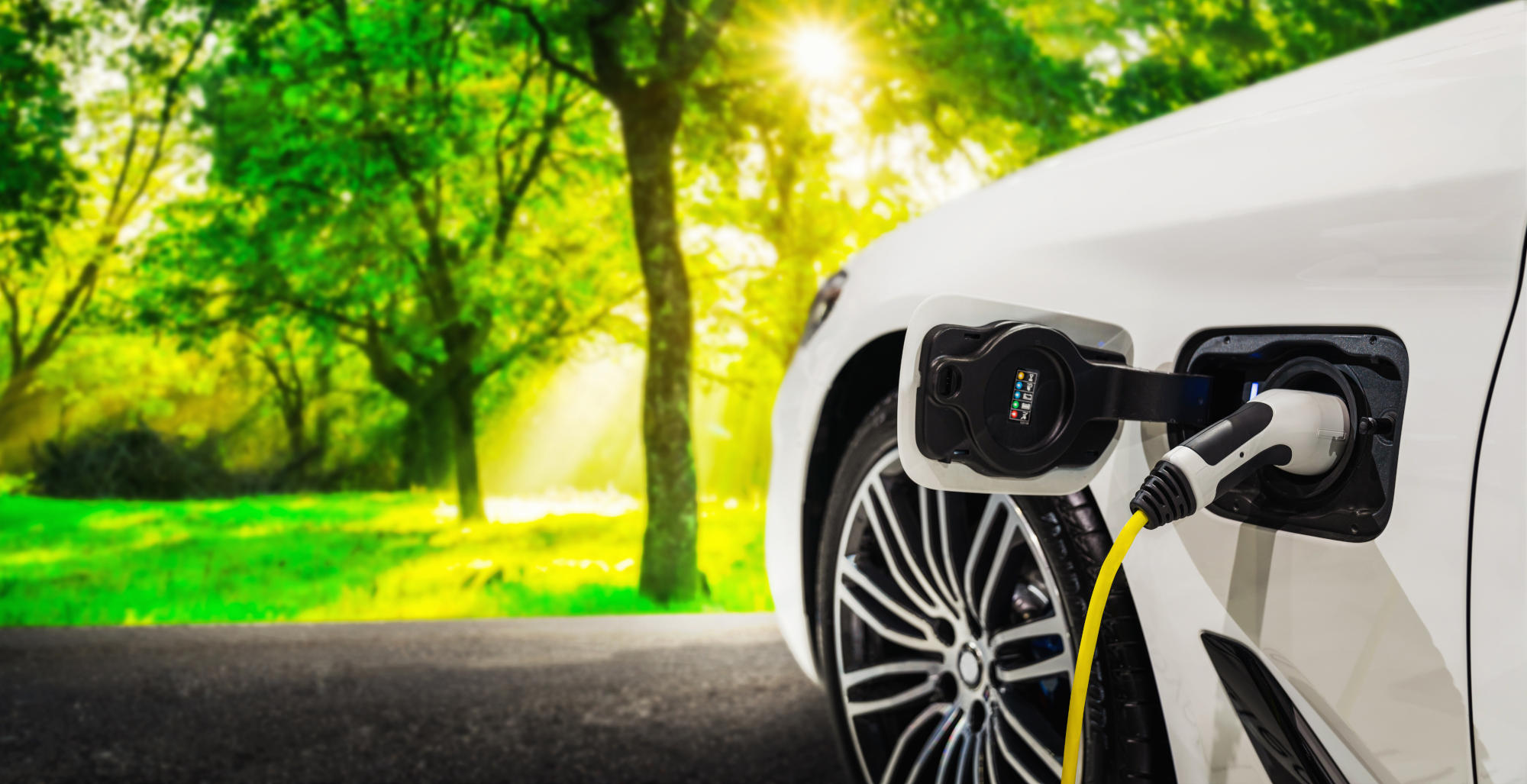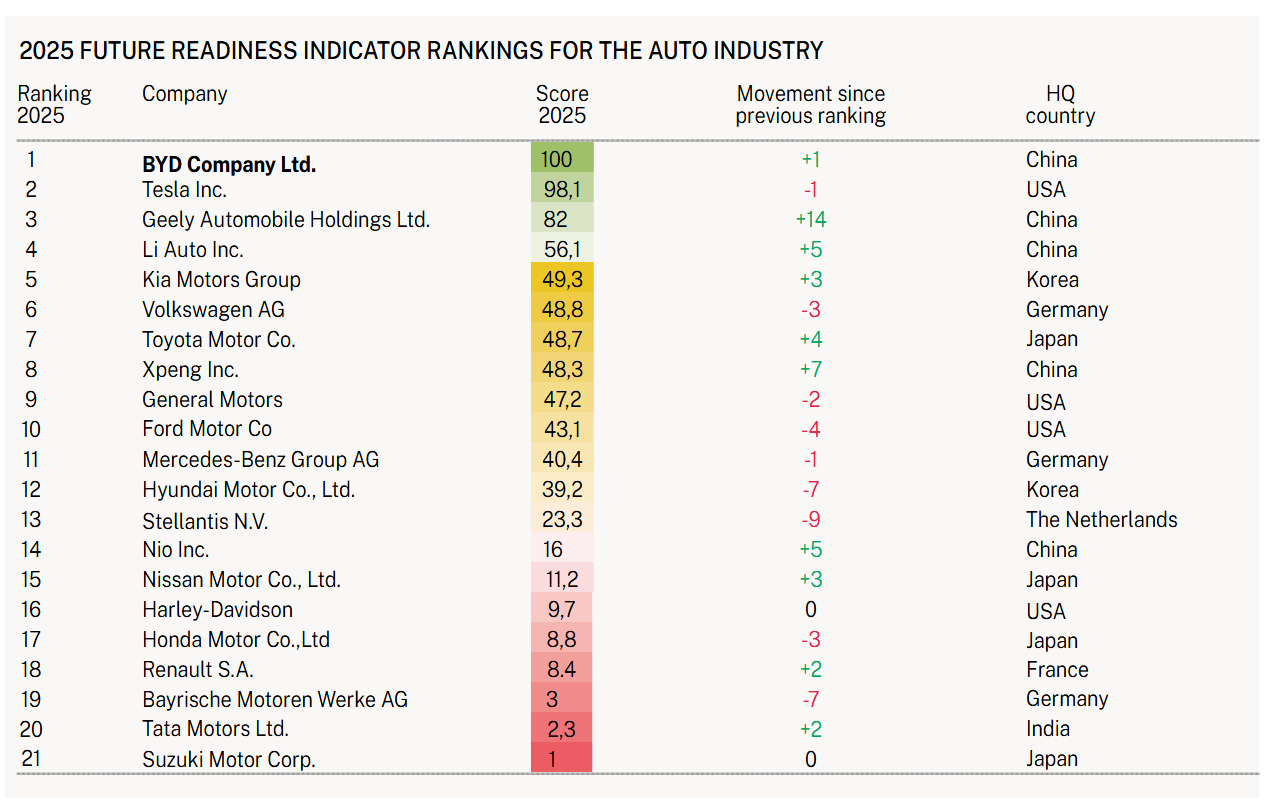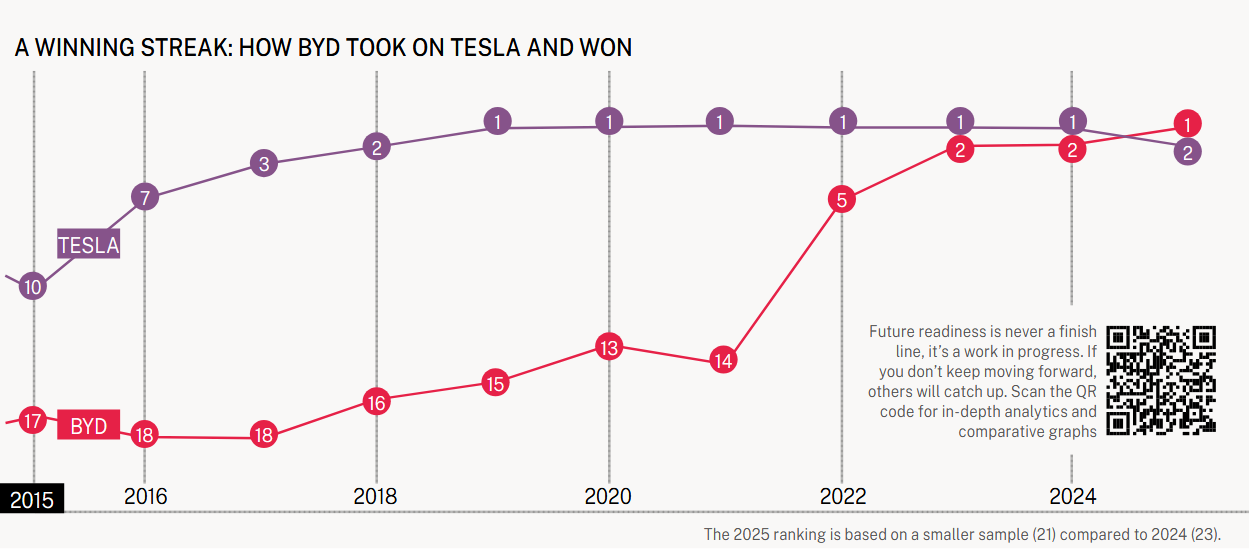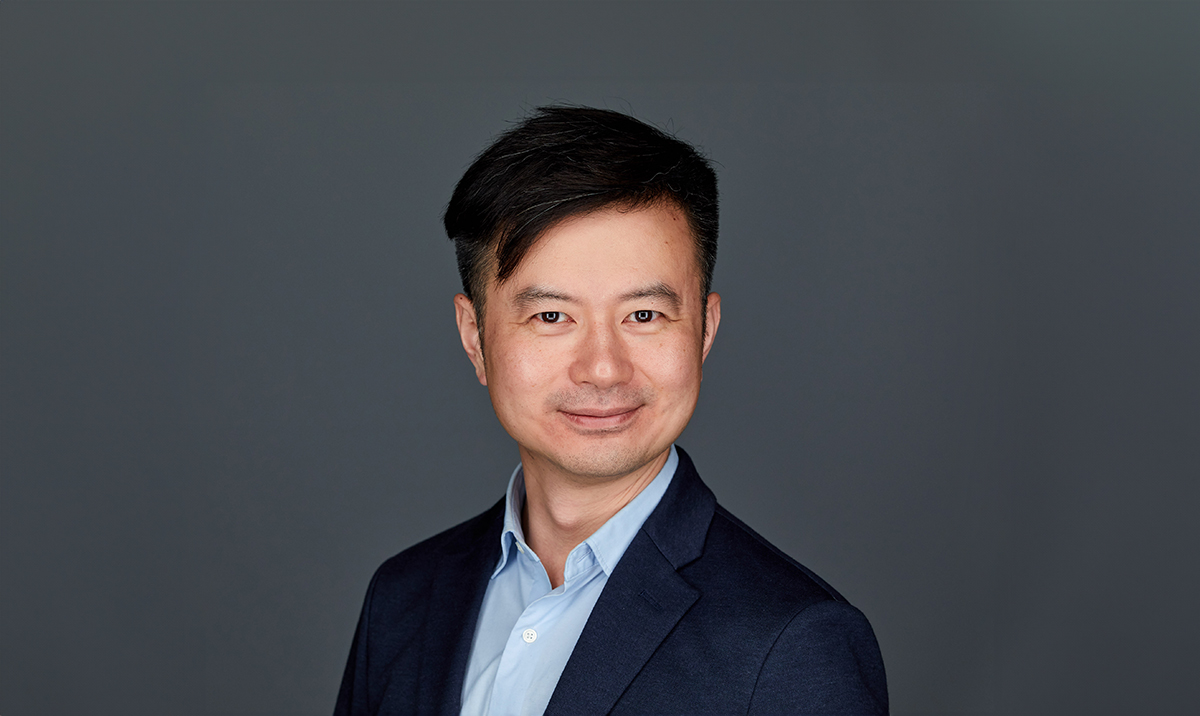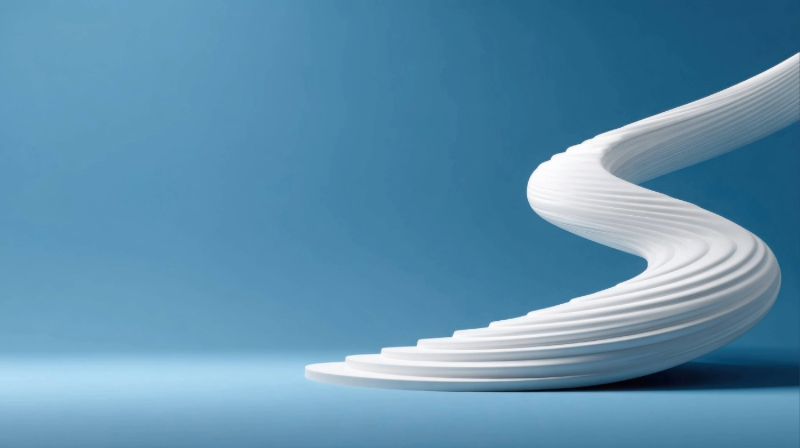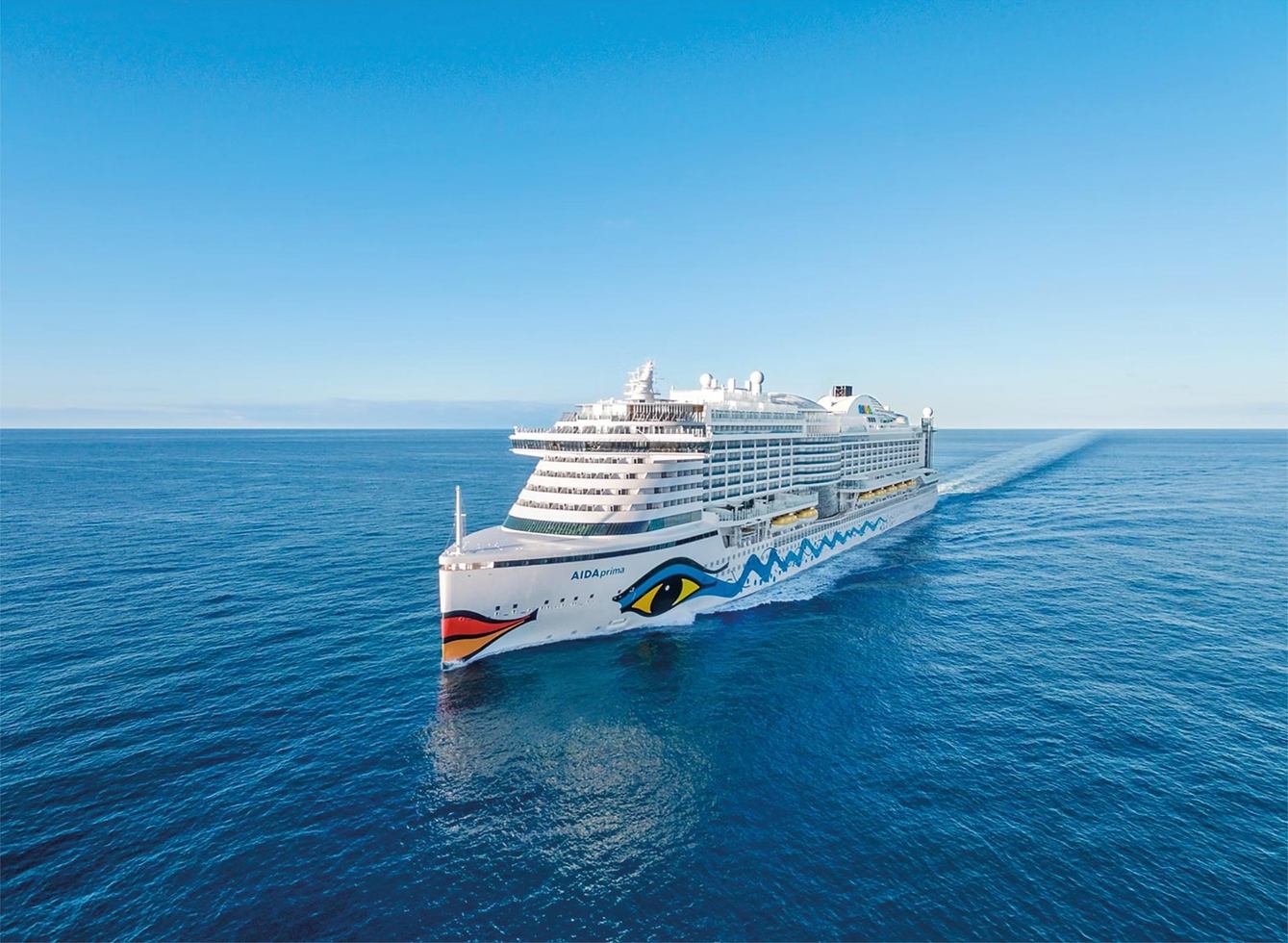Chinese EV manufacturer BYD edged out Tesla to take the top spot in our Future Readiness ranking released in May. It came as a report showed that BYD outsold its US rival in the European market for the first time. The feat is all the more impressive given that the EU has recently imposed tariffs on Chinese-made EVs.
So, what has changed? Elon Musk has promised many innovative products over the past decade, including robotaxis, humanoid robots, and fully autonomous driving. However, he has consistently missed deadlines, and some experts predict that most of these projects will be years in the making. Conversely, BYD’s Wang Chuanfu has remained focused on developing the company’s capabilities. Today, it is the world’s biggest EV manufacturer, powered by batteries with an impressive range. In March, BYD announced a five-minute battery charge would add 400km of range.
Established in 1995, BYD was initially focused on producing rechargeable batteries, principally for mobile phones. By the late 1990s, the company had become a leading supplier, but the market was maturing fast, and margins were reducing.
Wang was searching for the next growth area. In the 2000s, the demand for simple, battery-powered bikes and scooters exploded in cities across southern China. They were cheap, practical, and perfect for overcrowded streets. Cities across Asia followed suit. Building millions of battery packs for bikes and scooters gave BYD a crash course in real-world durability. The company learned how to lower unit costs, extend battery life, and scale manufacturing under pressure. Then Wang spotted an even bigger opportunity: fleets.
BYD didn’t chase luxury sedans. Instead, it targeted the workhorses: buses, taxis, delivery vans, and trucks. In 2010, it rolled out its first all-electric bus, the 12-meter K9. and became the first in the world to commercialize electric buses at scale. In 2018, DHL began using BYD’s T3 electric vans in Shenzhen for last-mile delivery. By 2019, BYD had built 50,000 electric buses that served over 300 cities worldwide.
BYD doubled down on vertical integration, designing and manufacturing in-house batteries, motors, and electronic controls. Engineers had to master every nut and bolt. Where others saw scraps, BYD saw strategic ground. It quietly dominated the niches everyone else ignored.
The lesson is clear: always maintain a strong focus on your core business. Lose focus and passion for what you do, and the competition will slide in and take over.
There has been much speculation about whether Musk still cares about selling cars, with Donald Trump, SpaceX, X, and xAI all vying for his attention. Meanwhile, BYD has pulled ahead while receiving less government support globally than Tesla. BYD has surpassed Tesla in all key metrics, from pure EV sales (on top of a booming hybrid segment) to innovation output.

Audio available
